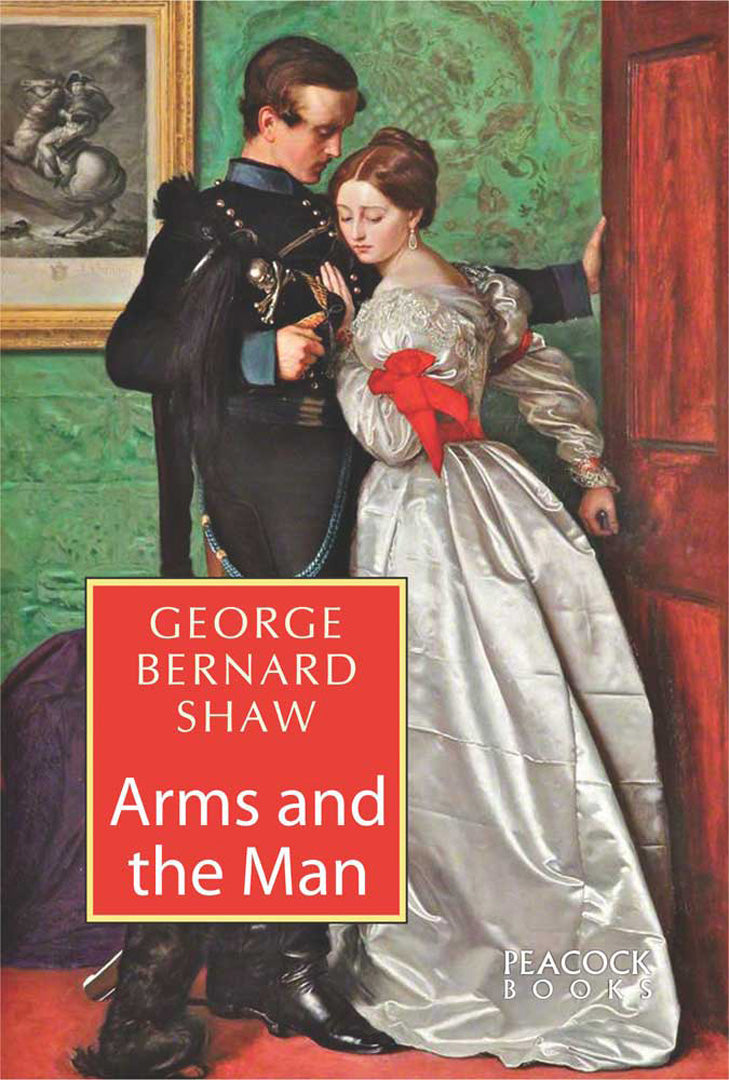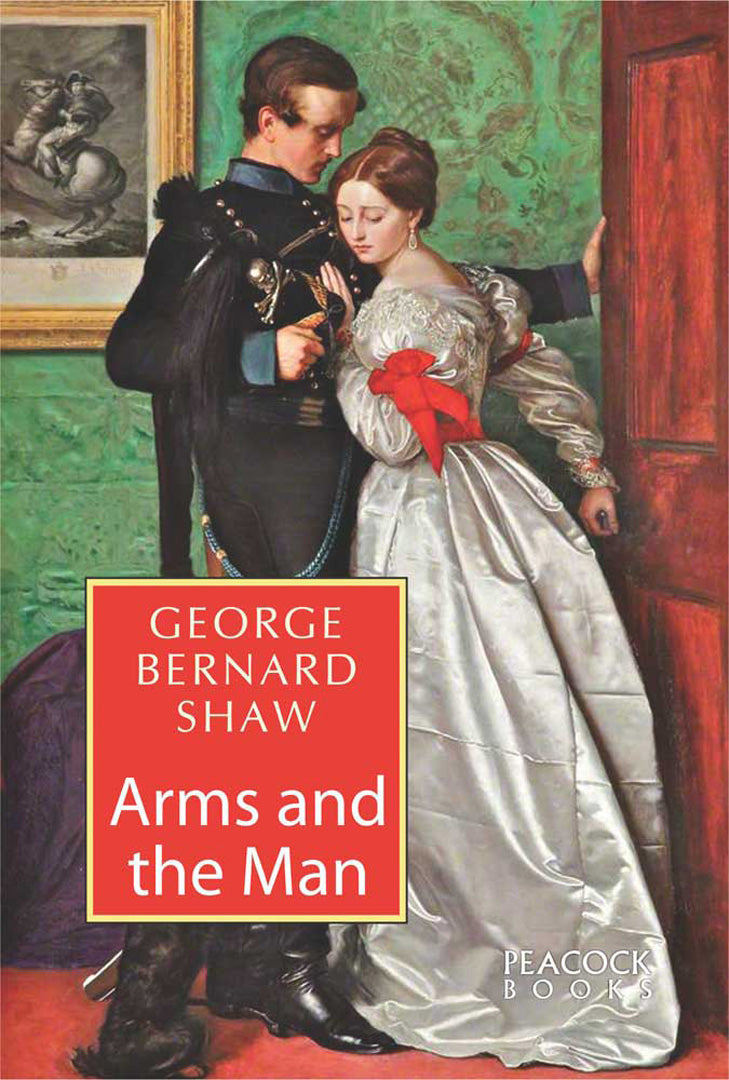Arms and the Man
Arms and the Man
George Bernard Shaw
Couldn't load pickup availability
Share

More Information
- ISBN13:
- Publisher: Atlantic Publishers and Distributors (P) Ltd
- Publisher Imprint: Peacock Books
- Publication Date:
- Pages: 88
- Binding:
- Item Weight:
- Original Price:
About The Book
Arms and the Man, one of Shaw’s most glittering comedies, was first produced on 21st April, 1894 at the Avenue Theatre and published in 1898 as part of Shaw’s Plays Pleasant volume, which also included Candida, You Never Can Tell, and The Man of Destiny. Like his other works, it questions conventional values and uses war and love as his satirical targets.
This play is also a burlesque of Victorian attitudes to heroism, war, and empire. In the contrast between Captain Bluntschli, the mercenary soldier, and the brave leader, Sergius Saranoff, the true nature of valour is revealed. The plot of the play has been set in the backdrop of the 1885 Serbo-Bulgarian war. Its heroine, Raina Petkoff, is a young Bulgarian woman engaged to Sergius Saranoff, one of the heroes of the war, whom she idealizes. One night, a Swiss voluntary soldier in the Serbian army, Captain Bluntschli, bursts through her bedroom window and firstly threatens her, then begs her to hide him, so that he is not killed. She complies, though she thinks the man a coward, especially when he tells her that he does not carry pistol cartridges, but chocolates. When the battle dies down, Raina and her mother sneak Bluntschli out of the house, disguised in an old housecoat. The war ends and Sergius returns to Raina, but also flirts with her insolent servant girl, Louka. Bluntschli unexpectedly returns so that he can return the old housecoat, but also so that he can see her.
Louka tells Sergius that the man with whom Raina is in love is Bluntschli. Raina admits that she has had feelings for Bluntschli since they first met. Sergius accepts Louka as his lover in public, thus satisfying Louka’s desire to move up in the social ranks.
About The Author
George Bernard Shaw, (26th July, 1856, Dublin, Ireland—2nd November, 1950, Hertfordshire, England), was an Irish playwright, author, literary critic, political activist, socialist propagandist, and the winner of the Nobel Prize for Literature in 1925. He was the third and youngest child (and only son) of George Carr Shaw and Lucinda Elizabeth Gurly Shaw. Technically, he belonged to the Protestant ascendancy, the landed Irish gentry, but his impractical father was first a sinecure civil servant and then an unsuccessful grain merchant. Therefore, he grew up in an atmosphere of genteel poverty, which to him was more humiliating than being merely poor. At first, he was tutored by his clerical uncle, then he was sent to various schools in Dublin but developed a great dislike for the formalized education systems.
Shaw developed a wide knowledge of music, art, and literature as a result of his mother’s influence and his visits to the National Gallery of Ireland. After working in an estate agent’s office for a while, in 1876, he left for London to join his mother. In London, he established himself as a leading music and theatre critic in the eighties and nineties and became a prominent member of the Fabian Society, for which he composed many pamphlets. With fellow Fabians such as Sidney and Beatrice Webb, he played an important role in the foundation of the London School of Economics (LSE) after receiving private bequests.
Shaw began his literary career as a novelist and as a fervent advocate of the new theatre of Ibsen (The Quintessence of Ibsenism, 1891) he decided to write plays in order to illustrate his criticism of the English stage. By the 1890s, his plays were being performed in London and the income from his plays enabled him to devote his life to writing. Like his contemporary, Oscar Wilde, his plays were popular for their biting wit and humour. His plays were in contrast to many Victorian plays which tended to be sentimental, escapist, and lacking in satire. His earliest dramas were called appropriately Plays Pleasant and Unpleasant (1898). Among these, Widower’s Houses and Mrs. Warren’s Profession savagely attack social hypocrisy, while in plays such as Arms and the Man and The Man of Destiny the criticism is less fierce. His radical rationalism, his utter disregard of conventions, his keen dialectic interest and verbal wit often turn the stage into a forum of ideas.

